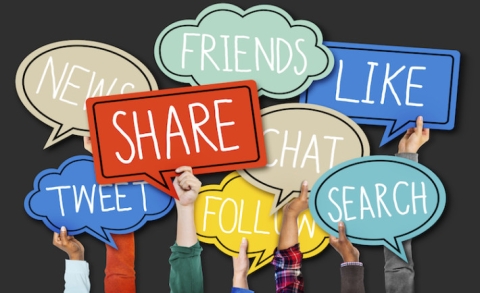EXHIBITOR Magazine Unveils Social Media Marketing Report

The momentum behind the use of social media as a marketing tool is continuing to grow, according to the results of EXHIBITOR Magazine’s 2018 Social Media Marketing Survey, the fifth in a series of research efforts geared toward finding out how exhibit and event marketers are using social media.
“In 2010, EXHIBITOR surveyed 400 marketers to obtain benchmark data on everything from which social media sites were proving the most popular for marketing purposes to what corporate objectives, if any, social media was helping companies to achieve,” explained Travis Stanton, editor of EXHIBITOR.
Since then, EXHIBITOR has surveyed nearly 1,000 exhibiting companies and charted the data against that 2010 benchmark, he added.
According to the data, the use of social media as a marketing tool has ballooned over the past eight years, with the majority of respondents saying that they not only have dedicated social media managers and/or departments to assist in strategizing, executing and measuring social campaigns but that they also make a habit of using paid features to heighten their messages on leading sites including Facebook, Twitter, Pinterest and Instagram.
“That’s a stark contrast to 2010, when social media was perceived as an entirely free marketing medium and roughly 85 percent of corporate social media campaigns were conceived of and executed by the marketing team, without the aid of dedicated social media subject matter experts,” Stanton said.
More than nine out of 10 marketers say their companies are currently using social media for a variety of purposes, including exhibit marketing (91 percent), event marketing (58 percent), and other general marketing purposes (95 percent), according to the study.
Stanton sited that event marketers who are tapping into the potential of social media marketing claim increased brand awareness, enriched relationships with clients and prospects, increased booth traffic and event attendance, additional press coverage and even increased sales as direct results of their campaigns, yet only one-third of marketers proactively set measurable objectives to gauge their social media efforts, and just a slight majority (57 percent) track any metrics to prove the success or failure of their social media campaigns.
While the majority of marketers are turning to the most heavily used platforms such as Facebook, Twitter and LinkedIn, other sites are gaining momentum and interest among marketers, as well.
In addition, while only 5 percent of exhibitors were promoting their exhibits on Instagram in 2014, in 2018 that number has increased to 37 percent.
Results from the 2018 Social Media Marketing Survey, published in the September 2018 issue of EXHIBITOR magazine, can be viewed HERE.
Don’t miss any event news! Sign up for any (or all) of our e-newsletters HERE & engage with us on Twitter, Facebook, LinkedIn & Instagram!


Add new comment